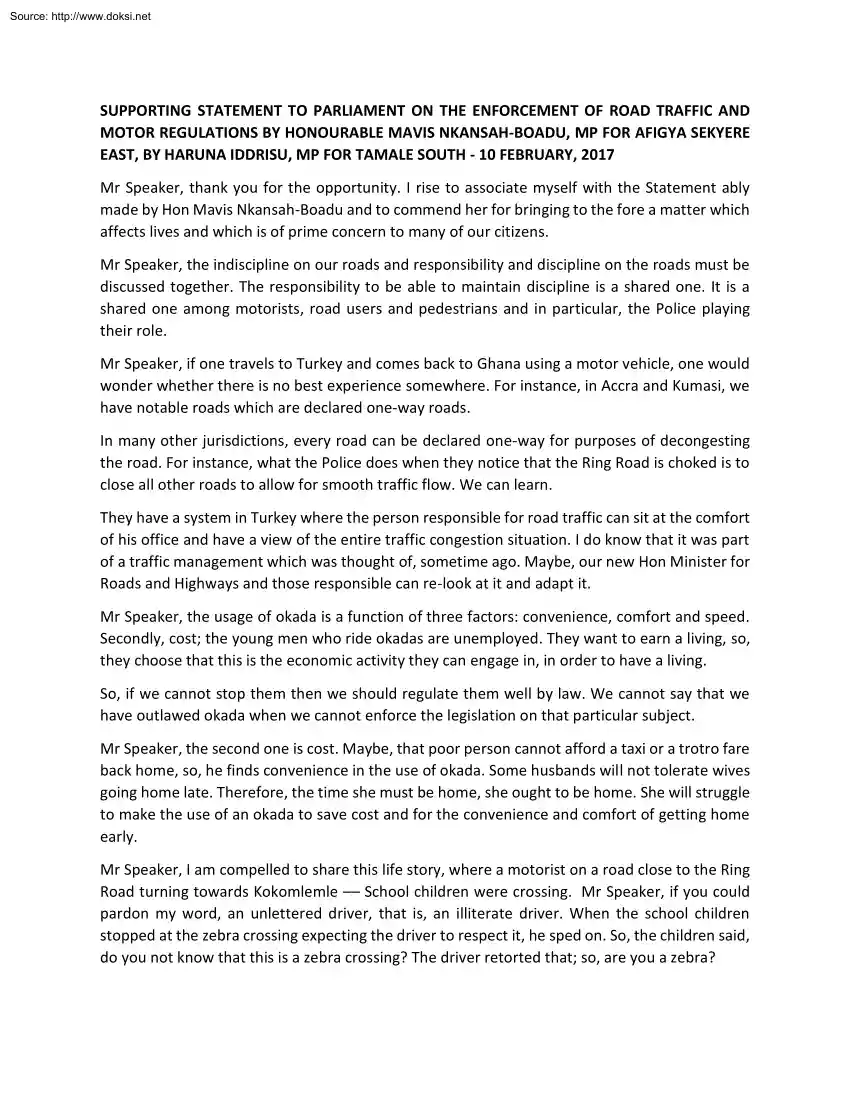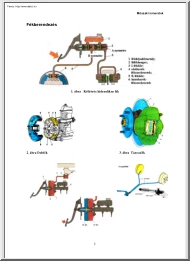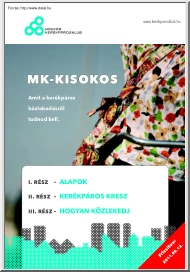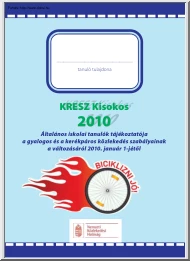Datasheet
Year, pagecount:2017, 3 page(s)
Language:English
Downloads:2
Uploaded:September 12, 2019
Size:542 KB
Institution:
-
Comments:
Attachment:-
Download in PDF:Please log in!
Comments
No comments yet. You can be the first!Most popular documents in this category
Content extract
Source: http://www.doksinet SUPPORTING STATEMENT TO PARLIAMENT ON THE ENFORCEMENT OF ROAD TRAFFIC AND MOTOR REGULATIONS BY HONOURABLE MAVIS NKANSAH-BOADU, MP FOR AFIGYA SEKYERE EAST, BY HARUNA IDDRISU, MP FOR TAMALE SOUTH - 10 FEBRUARY, 2017 Mr Speaker, thank you for the opportunity. I rise to associate myself with the Statement ably made by Hon Mavis Nkansah-Boadu and to commend her for bringing to the fore a matter which affects lives and which is of prime concern to many of our citizens. Mr Speaker, the indiscipline on our roads and responsibility and discipline on the roads must be discussed together. The responsibility to be able to maintain discipline is a shared one It is a shared one among motorists, road users and pedestrians and in particular, the Police playing their role. Mr Speaker, if one travels to Turkey and comes back to Ghana using a motor vehicle, one would wonder whether there is no best experience somewhere. For instance, in Accra and Kumasi, we have notable roads
which are declared one-way roads. In many other jurisdictions, every road can be declared one-way for purposes of decongesting the road. For instance, what the Police does when they notice that the Ring Road is choked is to close all other roads to allow for smooth traffic flow. We can learn They have a system in Turkey where the person responsible for road traffic can sit at the comfort of his office and have a view of the entire traffic congestion situation. I do know that it was part of a traffic management which was thought of, sometime ago. Maybe, our new Hon Minister for Roads and Highways and those responsible can re-look at it and adapt it. Mr Speaker, the usage of okada is a function of three factors: convenience, comfort and speed. Secondly, cost; the young men who ride okadas are unemployed. They want to earn a living, so, they choose that this is the economic activity they can engage in, in order to have a living. So, if we cannot stop them then we should regulate them well
by law. We cannot say that we have outlawed okada when we cannot enforce the legislation on that particular subject. Mr Speaker, the second one is cost. Maybe, that poor person cannot afford a taxi or a trotro fare back home, so, he finds convenience in the use of okada. Some husbands will not tolerate wives going home late. Therefore, the time she must be home, she ought to be home She will struggle to make the use of an okada to save cost and for the convenience and comfort of getting home early. Mr Speaker, I am compelled to share this life story, where a motorist on a road close to the Ring Road turning towards Kokomlemle –– School children were crossing. Mr Speaker, if you could pardon my word, an unlettered driver, that is, an illiterate driver. When the school children stopped at the zebra crossing expecting the driver to respect it, he sped on. So, the children said, do you not know that this is a zebra crossing? The driver retorted that; so, are you a zebra? Source:
http://www.doksinet Mr Speaker, who do the DVLA give licence to? Are they qualified? Can they go through basic training of traffic rules? We must insist on what the Hon Chairman of the Appointments Committee, former Chief Executive of DVLA –– There is a policy that do not give driving licence to illiterates or persons who cannot read and write or take them through basic driving literacy examination, so that they would appreciate that they are not the sole users of the road. We would have to look at it Mr Speaker, what is the interest of the Police when they are on the roads? It is about extortion; extorting money from taxi drivers and trotro drivers and making those necessary changes. They must focus on their primary role. I have seen instances where when pedestrians are crossing, their interest is not in what they are doing. In the night, I have observed, using the Police Hospital around Danquah Circle, all they do is to get flashlights and say pass. What are they searching for?
Their focus must be on the security. They use flashlights and they are not diligent about it It is of concern to many of us even though there are times that many motorists too are naughty. When they stop them, they would disrespect them. Mr Speaker, so, we thank the Hon Member who made the Statement. But I believe that it should be a concerted effort for us all to work towards discipline. Then the motorability of our roads –– Many of the roads are not in good shape. We still have to invest more in improving our road infrastructure and find alternative ways of doing it. Thankfully, our Hon Colleague, the Hon Minister for Railway Development will do Ghanaians proud if we were to develop an alternative, which is the railway system, so that we do not have to continue to use the roads. Finally, the use of closed circuit television (CCTV) camera and then discipline on the roads. We have seen instances where private people have tried to partner the Police in order to allow for discipline
on the road. In Washington and elsewhere, one knows that when one crosses, the camera would pick it. The next thing one finds is a fine at the home or in your vehicle to pay. Mr Speaker, indeed, if we encourage the Police to use the CCTV camera, we would be able to generate additional revenue for them and we should consider that. They should explore it with a public private partnership. Then the CCTV should not just be at the port; it should be everywhere in the country –– Even safety in our homes and within this Chamber, we should be able to monitor the activities of men with good and bad intentions with the use of the CCTV camera. While I thank the Hon Member who made the Statement, I believe that we all have a responsibility to contribute to the discipline on our roads and the respect for road traffic Source: http://www.doksinet regulations generally. The Police, particularly the Motor Traffic and Transport Directorate (MTTD) of the Ghana Police Service should be up and
doing. Mr Speaker, finally, just recently, we lost a journalist called Mr Bismarck Bebly, who was stopped by a police officer. I can give similar examples of the same nature, where just after a stop by the Police, in an attempt to use his vehicle, he was knocked down and then he lost his life. It is unfortunate and regrettable. Mr Speaker, but there have been many instances where broken-down vehicles on the roads contributed to accidents. Yet the Police can again partner private people for towing I know that some experimentation of that was also done. Mr Speaker, with these remarks, I would once again want to commend the Hon Member who made the Statement. Mr Speaker, I would want to urge you to refer this Statement to the appropriate institutions and task them with specific responsibilities, probably, to report back to a Committee of this House or directly to you. Mr Speaker, I thank you
which are declared one-way roads. In many other jurisdictions, every road can be declared one-way for purposes of decongesting the road. For instance, what the Police does when they notice that the Ring Road is choked is to close all other roads to allow for smooth traffic flow. We can learn They have a system in Turkey where the person responsible for road traffic can sit at the comfort of his office and have a view of the entire traffic congestion situation. I do know that it was part of a traffic management which was thought of, sometime ago. Maybe, our new Hon Minister for Roads and Highways and those responsible can re-look at it and adapt it. Mr Speaker, the usage of okada is a function of three factors: convenience, comfort and speed. Secondly, cost; the young men who ride okadas are unemployed. They want to earn a living, so, they choose that this is the economic activity they can engage in, in order to have a living. So, if we cannot stop them then we should regulate them well
by law. We cannot say that we have outlawed okada when we cannot enforce the legislation on that particular subject. Mr Speaker, the second one is cost. Maybe, that poor person cannot afford a taxi or a trotro fare back home, so, he finds convenience in the use of okada. Some husbands will not tolerate wives going home late. Therefore, the time she must be home, she ought to be home She will struggle to make the use of an okada to save cost and for the convenience and comfort of getting home early. Mr Speaker, I am compelled to share this life story, where a motorist on a road close to the Ring Road turning towards Kokomlemle –– School children were crossing. Mr Speaker, if you could pardon my word, an unlettered driver, that is, an illiterate driver. When the school children stopped at the zebra crossing expecting the driver to respect it, he sped on. So, the children said, do you not know that this is a zebra crossing? The driver retorted that; so, are you a zebra? Source:
http://www.doksinet Mr Speaker, who do the DVLA give licence to? Are they qualified? Can they go through basic training of traffic rules? We must insist on what the Hon Chairman of the Appointments Committee, former Chief Executive of DVLA –– There is a policy that do not give driving licence to illiterates or persons who cannot read and write or take them through basic driving literacy examination, so that they would appreciate that they are not the sole users of the road. We would have to look at it Mr Speaker, what is the interest of the Police when they are on the roads? It is about extortion; extorting money from taxi drivers and trotro drivers and making those necessary changes. They must focus on their primary role. I have seen instances where when pedestrians are crossing, their interest is not in what they are doing. In the night, I have observed, using the Police Hospital around Danquah Circle, all they do is to get flashlights and say pass. What are they searching for?
Their focus must be on the security. They use flashlights and they are not diligent about it It is of concern to many of us even though there are times that many motorists too are naughty. When they stop them, they would disrespect them. Mr Speaker, so, we thank the Hon Member who made the Statement. But I believe that it should be a concerted effort for us all to work towards discipline. Then the motorability of our roads –– Many of the roads are not in good shape. We still have to invest more in improving our road infrastructure and find alternative ways of doing it. Thankfully, our Hon Colleague, the Hon Minister for Railway Development will do Ghanaians proud if we were to develop an alternative, which is the railway system, so that we do not have to continue to use the roads. Finally, the use of closed circuit television (CCTV) camera and then discipline on the roads. We have seen instances where private people have tried to partner the Police in order to allow for discipline
on the road. In Washington and elsewhere, one knows that when one crosses, the camera would pick it. The next thing one finds is a fine at the home or in your vehicle to pay. Mr Speaker, indeed, if we encourage the Police to use the CCTV camera, we would be able to generate additional revenue for them and we should consider that. They should explore it with a public private partnership. Then the CCTV should not just be at the port; it should be everywhere in the country –– Even safety in our homes and within this Chamber, we should be able to monitor the activities of men with good and bad intentions with the use of the CCTV camera. While I thank the Hon Member who made the Statement, I believe that we all have a responsibility to contribute to the discipline on our roads and the respect for road traffic Source: http://www.doksinet regulations generally. The Police, particularly the Motor Traffic and Transport Directorate (MTTD) of the Ghana Police Service should be up and
doing. Mr Speaker, finally, just recently, we lost a journalist called Mr Bismarck Bebly, who was stopped by a police officer. I can give similar examples of the same nature, where just after a stop by the Police, in an attempt to use his vehicle, he was knocked down and then he lost his life. It is unfortunate and regrettable. Mr Speaker, but there have been many instances where broken-down vehicles on the roads contributed to accidents. Yet the Police can again partner private people for towing I know that some experimentation of that was also done. Mr Speaker, with these remarks, I would once again want to commend the Hon Member who made the Statement. Mr Speaker, I would want to urge you to refer this Statement to the appropriate institutions and task them with specific responsibilities, probably, to report back to a Committee of this House or directly to you. Mr Speaker, I thank you





